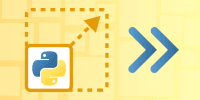Description
Interviews for product architecture are generally more about evaluating an engineer's logical thinking, balancing user needs, scalability, trade-offs, reliability and cost than they are about coding. Understanding what interviewers are looking for, deconstructing ambiguous situations and successfully communicating architectural decisions are all covered in this course in a methodical and useful way. This course focuses on product thinking and its relationship to technical architecture, rather than just system design. Through case studies and real-world scenarios, learners can practice building products with actual users, business objectives and technical limitations in mind.
Topics Covered
- Introduction to product architecture interviews and evaluation criteria.
- Core architectural principles: scalability, reliability, maintainability, and cost-efficiency.
- Decomposing complex product requirements into architectural components.
- Understanding product constraints, trade-offs and design justifications.
- API design, data modeling and system interaction patterns.
- Case studies of popular product architectures (e.g., ride-sharing apps, social platforms).
- Handling non-functional requirements: performance, availability, security.
- Communicating architecture clearly in interview settings.
- Mock interview walkthroughs with sample questions and solutions.
- And many more topics to explore.
Who Will Benefit
This course can be beneficial for a variety of individuals like:
- Senior software engineers preparing for technical interviews.
- Tech leads and engineering managers who want to strengthen architectural reasoning.
- Engineers targeting FAANG-level or any top-tier company interviews.
- Anyone who belongs to this field looking to improve their ability to analyze, communicate and design technical solutions at scale
Why Take This Course
As your career in software engineering progresses, it becomes important to think and communicate at the architectural level, especially if you want to take on senior or leadership roles. Apart from the theoretical ideas covered in textbooks, this course will help you in practical, industry-relevant insights that can help you stand out in competitive interviews. By the end of the course, you will be able to confidently respond to inquiries about architecture and have a better understanding of how to design scalable, user-centered systems in real-world scenarios.








